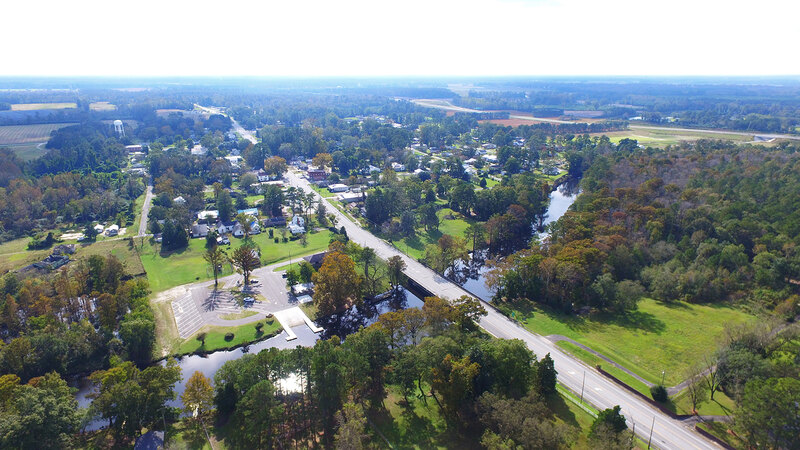2021 Deb Mitchell Research Grant Awarded

The Landscape Architecture Foundation (LAF) is delighted to announce the 2021 recipient of our $25,000 research grant.
The LAF Research Grant in Honor of Deb Mitchell is awarded annually to support a research project that is relevant and impactful for the professional practice of landscape architecture.
The winning proposal, Developing a Disaster Adaptation Framework for Rural Resilience, will examine in-place adaptation to climate change as a viable and necessary alternative to relocation for rural communities and small towns. Principal investigators Travis Klondike, Associate ASLA, and Andrew Fox, FASLA, PLA, will compile and assess economic, geospatial, and policy information to identify community-based characteristics and in-situ strategies that support rural resiliency.
The 18-month study’s mixed-methods approach will rely heavily on geospatial analytics and modeling, ground-truthed through interviews in communities across eastern North Carolina, to shed light on whether rural residents will experience a reduced ability and/or willingness to relocate out-of-county or out-of-state to “climate-safe” locations. All methods, findings, and recommendations will be packaged to create a Rural Resilience Framework that highlights the significant yet underutilized role of landscape architects, providing a roadmap and call-to-action for using non-traditional tools, techniques, and partnerships to support resiliency efforts in these communities.
“While resilience has received much attention in large urban areas, it is under-examined for rural communities. This proposal represents an opportunity for landscape architects to better understand how their work can support rural resilience and also influence policy by exploring strategies that do not rely on relocation away from the places and social systems that rural residents know,” said Michael Johnson, a member of the LAF Board of Directors and Research Committee and Principal/Urban Design Practice Co-Director at SmithGroup, which augmented the generous bequest from Debra Mitchell, FASLA to establish the grant.
LAF is proud to support this important work that fills a critical gap in climate adaption policy and planning, setting the stage for a more inclusive and equitable response.
Project Abstract
Too often, rural communities attempting to recover from or prepare for natural hazards lack the local economic and technical capacity to adequately respond to the systemic and emerging threats of climate change. As a result, many small towns in rural America are grouped en masse into planning strategies that remove people from direct environmental risks, but also from the places and social systems required for their full community health. This research highlights the need for in-situ adaptation to climate change as a viable and necessary alternative. The study will examine standardized, national disaster relief policies against constructs of rural “buying power” and geographic mobility patterns of disaster survivors to: (1) illustrate the need for more inclusive, climate-responsive land planning solutions for rural communities, and (2) develop a transferable framework that describes actionable approaches landscape architects can take to support under-resourced rural communities to achieve their recovery and resilience goals.
Principal Investigators
Travis Klondike, Associate ASLA, is Assistant Research Professor at the Coastal Dynamics Design Lab and the Department of Landscape Architecture and Environmental Planning at the North Carolina State University College of Design.
Andrew Fox, FASLA, PLA, is Professor and University Faculty Scholar in the Department of Landscape Architecture and Environmental Planning at the North Carolina State University College of Design. He is also Co-Director of the Coastal Dynamics Design Lab.











